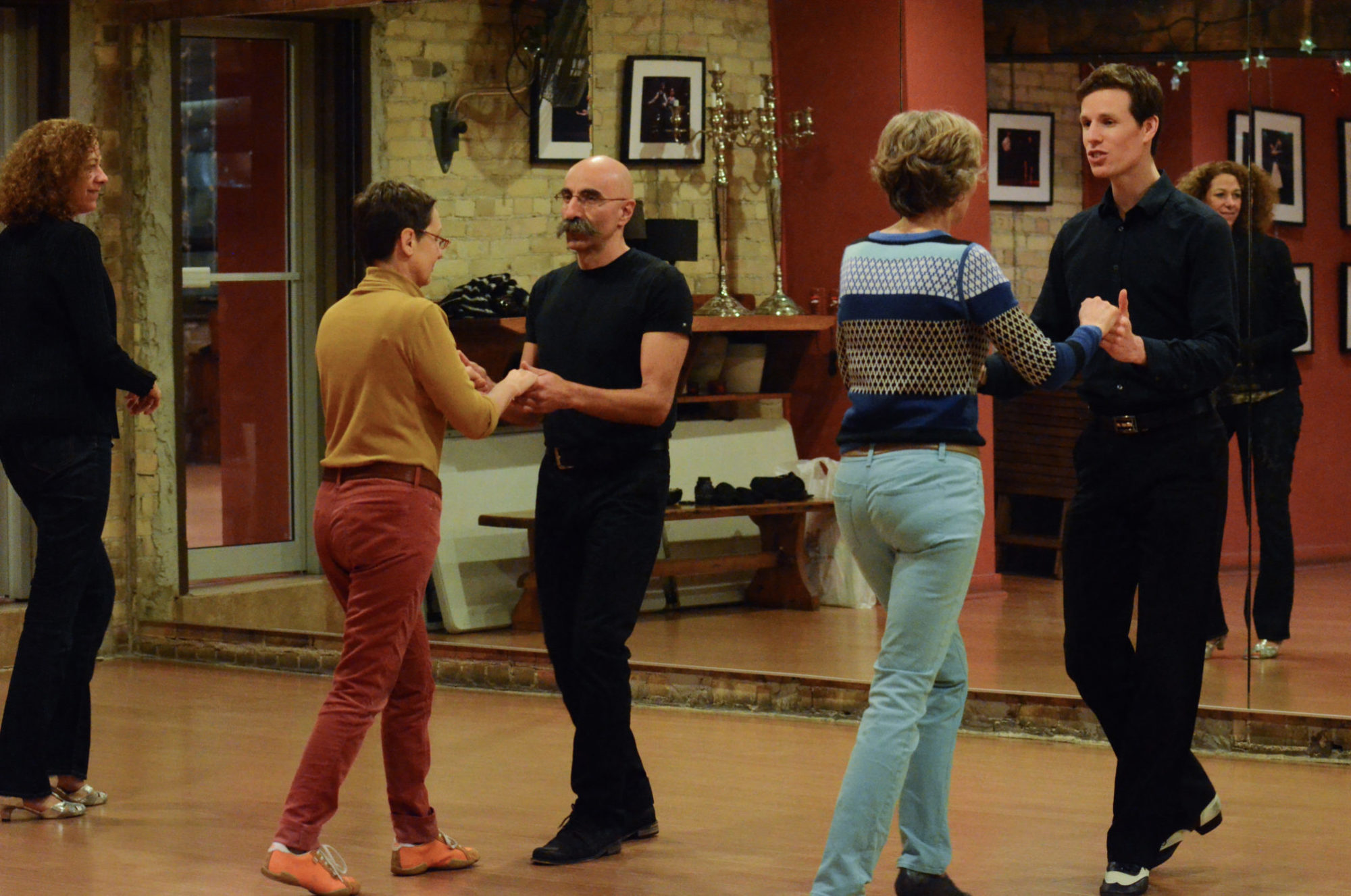Most of us have a list of things we’d like to know when looking for a dance studio for the first time. Here’s a compilation of some of the most common questions I’ve heard, and the most common answers.
- Is a partner necessary?
Absolutely not! While it can be fun to learn with your lady or hubby, singles get the advantage of a private lesson tailored just for them, without having to compromise. And if you’re attending a group class, partners are usually rotated around so you’re never long without someone to dance with.
NOTE: An exception to this would be specialty classes that require two people who are already comfortable dancing together, like an advanced lifts & tricks class.
2. What kind of shoes do I need?
The only absolute prerequisite is your shoes be clean (bring an extra pair if getting to the studio involves rain, snow or mud), with no cleats or metal that could damage the hardwood floors. Shoes with flat soles and suede leather can turn and slide across the floor more comfortably than shoes with treads and rubber soles. For ladies, a low heel - no more than 2” - helps to bring the weight onto the balls of your feet, which also helps with balance and turning.
3. How should I dress?
Unless you’re attending a particularly formal studio, wear what feels comfortable, breathes well, and allows a comfortable range of movement - no skin-tight jeans or pencil skirts. I go into more detail on dance hall and club attire in another article.
4. Is it okay to start lessons at a studio as an absolute beginner?
There’s no better place to go - it’s certainly better than searching random dance links on the internet.
Virtually every established studio has absolute-beginner options. The Joy of Dance Centre for instance, offers drop in ballroom basics and assessment lessons for students and instructors to get to know each other. Incidentally, it’s also a great way to check out different studios without shelling out a lot of cash up front.
5. What’s better to start, groups or privates?
Again, I’ve covered this previously, but the short answer is, it depends what you want to get out of dancing. Private lessons are generally better for learning faster and it’s tailored to your experience, while group classes are more affordable and offer a more social learning experience. What are you looking for?
6. Will I have to perform/compete?
While some studios try and pressure their students into competing, the final decision is up to you. Certainly it can have benefits like giving you a goal to work towards and increased exposure to high-level dancing. Nevertheless, I strongly believe it isn’t necessary to compete to reach a high level of dancing. Most ballroom dancers stick with social dancing and are perfectly happy with it.'
7. How qualified are the instructors?
This one’s a toughie. If ‘qualified’ means dancing ability, instructors tend to split roughly into two camps: competitive instructors who have been training since they were kids, and social (usually) instructors who started when they were teenagers, or even later. So all you have to do is find one of the former, right?
Not so fast. Actual teaching ability is very different from dance ability, and newer instructors often have the advantage of remembering what it was like to be a beginner, while still having enough experience to take you a long way. Just try an intro lesson and see if you click with your instructor. If not, move on. The road of dance is a wild and exciting adventure - best spend it with a teacher who can keep it that way for you.
